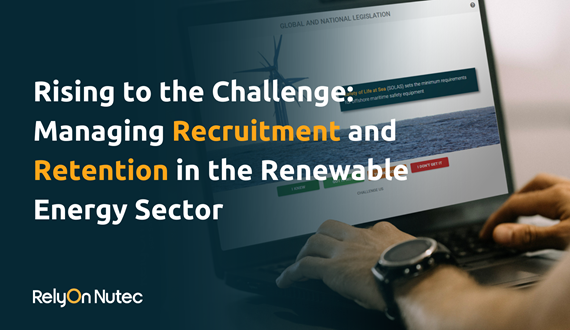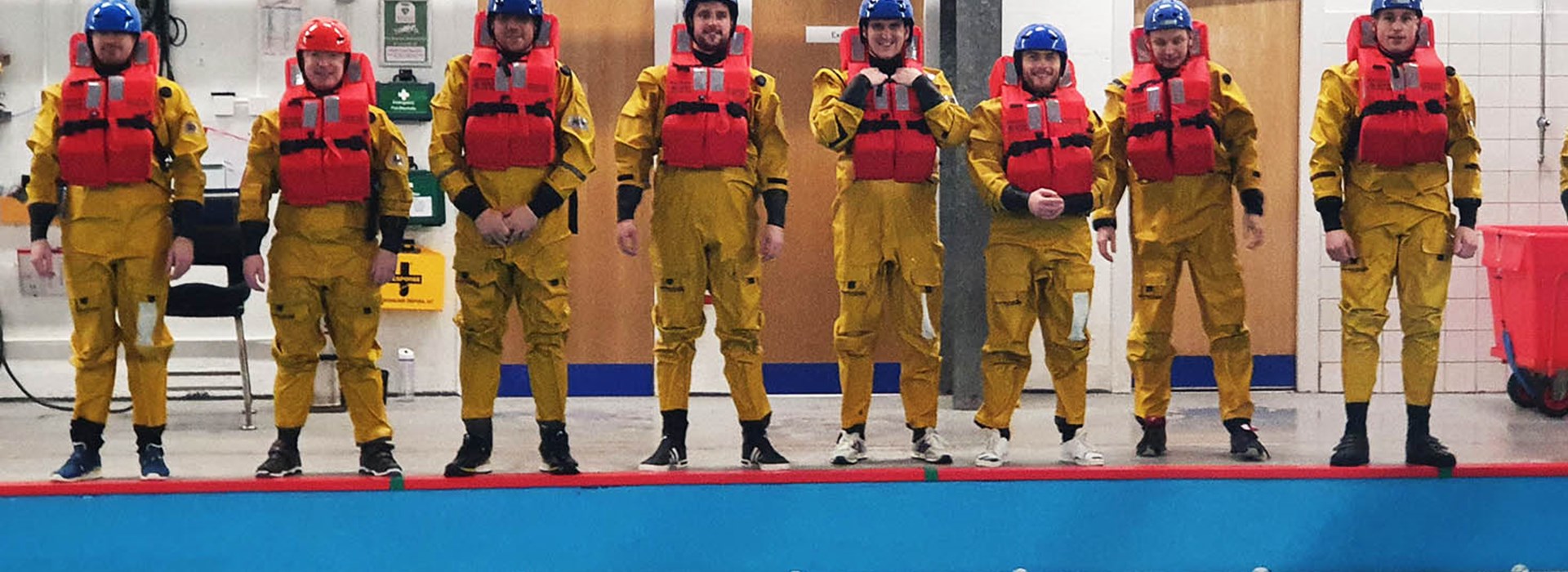Ok
In total, almost 400 people from the Aberdeen city and shire regions were given the opportunity to undertake training for offshore wind or oil and gas. The aim of the energy transition training fund is to provide financial support to a workforce distanced from the sector due to training costs and contribute to job retention and creation, reskilling and upskilling.
Upon commencement of the project, we caught up with some of the first delegates to come through the doors to find out about what they’d been up to, what the funding meant to them, and what their hopes are for the future.
Zbigniew Labencki
Zbigniew is a highly qualified individual. He has a Masters in both Oceanography and Economics, as well as a degree in Oil and Gas Enterprise Management.
He’s also got lots of relevant experience, having spent 4 years with Stork as a Project Manager and then a further 6 years with MI Swaco, firstly as a Project Engineer and laterally Technical Service Manager.
But like thousands of others, in 2020 he was made redundant. Subsequent searches for work have proven futile, and Zbigniew says he has applied for literally dozens of jobs with no response from any of them.
Not one to rest on his laurels, he set up his own joinery business in 2021 and once again returned to education part-time. He is currently undertaking a HNC in Electrical Engineering at NESCOL with a view to entering the offshore wind sector.
To change industries, Zbigniew needs more than higher/further education. He also needs his GWO Basic Safety Training and Basic Technical Training certificates. With an unsettled couple of years behind him, the cost of this training is significant and therefore the funded spaces have been of great benefit.
Lukasz Weglarz
With 12 years-experience, Lukasz has seen a lot of the offshore industry. From deck crew and rigging, to wireline and shutdowns, Lukasz has worked a variety of roles on different platforms for multiple employers.
As is so often the case in the oil and gas industry, Lukasz has always worked contract to contract. A victim of the global pandemic, his most recent 3-year contract was cancelled after one trip because of COVID.
Since then, Lukasz has only secured one offshore trip and has spent the rest his time doing odd jobs, for example, labouring at TECA. Anything to bring in money to support himself.
He thinks offshore job opportunities are even more limited since COVID as a result of 30% less capacity allowed offshore, and so he sees the renewables sector as a more attractive prospect.
With money being tight over the last couple of years, the funded training has provided Lucasz with an opportunity that he would not have been able to give himself.
Stuart Davidson
Stuart Davidson has spent seven years offshore. Four of these spent working contracts in the wireline field. As the oil/gas sector has experienced years of turbulence, Stuart has struggled to find a permanent staff position.
He had finally lined up a job which was due to start in early 2020. His contract had not quite been signed when the global pandemic hit and as a result the contract was cancelled immediately with no option for furlough.
As the father of a young child, Stuart is determined to secure a stable career with long-term prospects. He sees his future in the offshore wind sector and is keen to undertake any training required to upskill himself.
Having been largely unemployed for the last two years, Stuart was unable to justify the cost of the training so receiving funding to complete the GWO BST and BTT qualifications is of huge benefit to him and his family.
All three of these stories are all too familiar in the industry and mirror thousands of others who are now distanced from the workforce. The sector’s legacy is one of boom and bust and COVID has simply added to the challenges of working in oil and gas.
However, over the next decade it is anticipated that 35% of a 200,000 strong workforce will still work on oil and gas projects, with the other 65% expected to support low carbon energy activities*. The UK energy sector is still a great place to make a career with a sustainable future and with so many skills transferrable from oil and gas to offshore wind, the future is definitely brighter for our delegates and many others.
We look forward to following Zbigniew, Lukasz and Stuart’s journeys as they move from our training centre and hopefully into new, long-term careers in the energy sector, and we wish them the best of luck in their search for work. Keep watching for further updates.
* UK Offshore Energy Workforce Transferability Review by RGU
Next read
-

-

-
 Article 14. June 2024
Article 14. June 2024 -

Ensuring Safety and Efficiency: IRATA Rope Access Training for a Safer Work Environment
In industries such as oil & gas and renewables, where accessing challenging locations is common, rope access methods provide a safe and efficient solution. These methods offer technicians a secure means of navigating heights and restricted areas while minimizing environmental impact. However, proficiency in rope access requires proper training and a globally accepted safety education.
Article 4. June 2024 -

Polaris Sells RelyOn Nutec to Mubadala Capital
The acquisition, part of Mubadala Capital’s flagship Private Equity Fund IV, strengthens the asset manager’s footprint in the business services sector.
Article 24. May 2024 -

RelyOn Nutec Acquires Electrical Training and Consultancy Specialist Quercus Technical Services, Fast-tracking European Electrical Capability Build
Effective May 21st, RelyOn Nutec has acquired Quercus Technical Services BV, one of the largest specialist electrical safety and skills training organizations in the Netherlands. The acquisition of Quercus bolsters RelyOn Nutec’s position in the electrical training market and accelerates its European roll out.
Article 22. May 2024 -

-
 Article 2. May 2024
Article 2. May 2024
